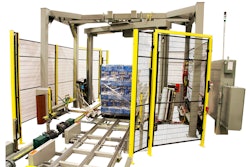
Axonify announced results from its fourth annual Global State of Frontline Employee Training Study conducted in July/August 2020 by global market research firm Arlington Research. Focusing on frontline training and preparedness in the US, UK and Australia during the global COVID-19 pandemic, this year’s survey found that frontline workers are getting left behind, as 39% indicated they don’t feel prepared to do their job in the current environment. And 30% of frontline workers don’t trust their employers or are ambivalent about their employer’s ability to deliver the training they need to do their jobs effectively, with employees in the US having the lowest confidence (64%).
The survey engaged 2,000 frontline employees from a range of industries including retail, grocery, contact centers and professional sales to learn more about the experience of working on the frontlines through COVID-19.
“Historically, there has been an inaccurate and pervasive view that frontline workers aren’t worth investing in. Luckily, the tides are changing because nothing brings a level of focus to the things that truly matter quite like a global pandemic,” said Carol Leaman, CEO of Axonify. “It’s now crystal clear that business runs through the frontlines. The things frontline employees do and don’t do absolutely impact how a business performs.”
The key takeaways from the report include:
Proper Training, Communication Messaging and Frequency Critical in Pandemic
Since the onset of the pandemic, 49% of frontline workers surveyed had been furloughed with less in the US (31%) compared to in Australia (59%) and in the UK (57%). Despite the pandemic challenges, it appears organizations continued to communicate with frontline employees, even when they were furloughed. Nearly all furloughed employees indicated there was some form of contact while being furloughed (98%).
Issues arose when asked to describe the communications with just under half of frontline employees said the communications were “relevant” to their job (46%), and only 4 in 10 described them as “reliable” (40%) and “timely” (39%).
Retail and grocery employers fall behind the pack
Throughout the overall survey, grocery and retail workers scored lower than frontline workers in other industries. They reported feeling less safe, less supported, less trained, less knowledgeable and less confident than the average frontline worker.
- Only 61% of grocery store and 62% of retail employees felt supported by their manager while professional sales employees (73%) and those working in contact centers (72%) felt more supported.
- In receiving regular training, only one out of two respondents reported receiving it for grocery (50%) and retail stores (52%), compared to 64% in contact centers and 65% in professional sales.
- When frontline employees were asked to take on additional tasks or a new role, only 65% of those in a retail environment felt they were provided with the training and support they needed.
- One-third of grocery store associates felt their employer had not taken proper action to keep their staff safe through this crisis
Added Leaman, “It is no question that the grocery and retail industries have been directly in the eye of the storm, so they have certainly been dealing with more chaos than the average employer. But this is the canary in the coal mine. If they don’t turn their attention to the actual training and support needs of their frontline soon, they risk getting swallowed up by competitors who are.”
More support doesn’t translate to better support
While many frontline employees report receiving training often and regularly, it doesn’t appear to be hitting their sweet spot. Only one-third of respondents reported that their training is easy to understand and retain, quick to complete and contributes to how confident they feel doing their jobs during the pandemic.
Almost half of those surveyed (46%) had taken on new tasks as a result of the pandemic, while 23% had filled a new position altogether. When asked if training had been provided when taking on their new role and/or task(s), only 48% of frontline workers agreed.
When asked about training during the pandemic, the frontline workers surveyed indicated the following about their training experience:
- 34% cited the training was easy to understand and remember
- Less than a quarter (21%) indicated the training was enjoyable and engaging
- 32% felt more confident in their ability to do their job due to the training

















